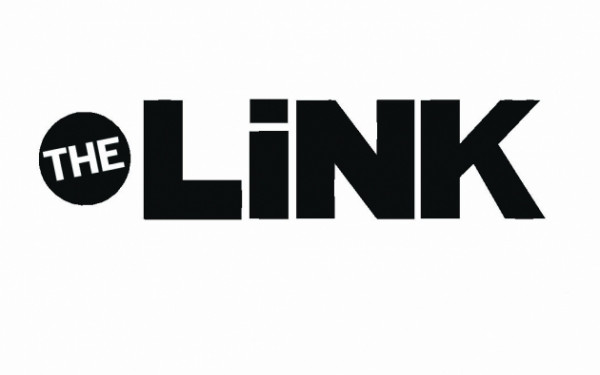Right to Report
Possible Press Accreditation Requirement in Quebec
New legislation might require journalists in Quebec to obtain accreditation in order to continue pursuing their roles as reporters.
It all began last January when Dominique Payette, a professor at Université Laval and former journalist with Radio-Canada, submitted a report on the state of the media.
The Payette Report described some of the issues in the Quebec media, and provided 51 recommendations in order to rectify these problems. One of these recommendations was to create a professional title for journalists.
In April 2011 La Fédération professionnelle des journalistes du Québec held a referendum for its 2,000 members to vote for or against the creation of a professional title. The result was an overwhelming 86.6 per cent in favour. Claude Robillard, secretary general for FPJQ, described the result as “almost North Korean in nature.”
Since then, a proposal containing four of the 51 recommendations has been presented to Christine St-Pierre, the Quebec Minister of Culture, Communications and the Status of Women. The creation of a professional title for journalists was included.
But why is this title necessary, and overwhelmingly popular?
According to Robillard, one of the main reasons journalists are in favour of this title is to differentiate between professional journalists and all other types of communicators.
“With the arrival of the Internet, blogs, social media, etc. everyone has begun writing and commenting,” said Robillard. “Even in newsrooms, information is being diluted with the arrival of all sorts of commentators, such as politicians, ex-politicians, hockey players, and ex-hockey players.
“And we say that, for the public, the difference between someone who has a hidden agenda and the journalist who isn’t supposed to have any hidden agendas, isn’t necessarily evident.”
Steve Faguy, a copy editor at The Gazette and creator of the blog Fagstein, doesn’t believe any distinction is possible or required.
“Many people see [the word] ‘journalist’ and they think of a newspaper reporter,” said Faguy. “But journalism is a lot more complicated than that, and it’s only going to get more so. I think it will be impossible for a line to be drawn between ‘journalist’ and ‘non-journalist’ because I don’t believe such a distinction exists anymore.”
This proposition also raises the question of which organization ought to be given the power to dictate who receives the title and who doesn’t.
According to Robillard, the FPJQ is the natural choice for this role. He said the federation has more than 2,000 members, accounting for about half of all working journalists in Quebec. Robillard said the federation really has no equivalent elsewhere in North America, citing the Canadian Association of Journalists as having only about 550 members Canada-wide, and the Society of Professional Journalists in the U.S. with 9,000 members, although the country’s population is far greater than Quebec’s.
He also mentioned the Federation has been administering the press cards for over 20 years and that this new task would be very similar in nature.
The FPJQ puts forth a strong case, but a fundamental question remains—who has the right to say whether someone is a journalist or not? And why is that distinction even important?
In an article, published by The Métropolitain in Feb. 2011, Beryl Wajsman, the editor in chief of The Suburban and The Métropolitain, said that the Payette Report was, “the greatest affront to the freedom of expression since the French language laws.”
Wajsman said it is inherently an issue of freedom of expression and freedom of the press. “There can be no good intentions involved in this proposal. There needs to be equal opportunity for everyone to shout no matter if it offends someone else.”
“When has a piece of legislation since the Trudeau administration increased the freedom of society?” he asked. “Legislation only serves to further restrict freedom.”
The Gazette also published an online statement, which rejects any attempt to create a special status for professional journalists.
“The creation of a special class of journalists as recommended in the Payette Report would, in The Gazette’s view, violate the fundamental rights guaranteed by both the Canadian and Quebec Charter of Rights,” said the statement.
“Freedom of expression, as guaranteed by these charters, does not distinguish between various classes of speakers. To give one class of speakers a special status is to violate the fundamental rights of ‘lesser’ speakers who are not so fortunate as to be awarded membership in that class.”
Elias Makos, technical instructor at Concordia University and a regular contributor to both CTV Montreal and CBC Montreal, shared this opinion. “I am completely against the creation of a professional title for journalists. One of the things that makes a free press free is the whole ‘free’ part. To add some extra hoop, hurdle and obstacle before someone can be a journalist, or someone can have extra privileges as a journalist, is just ridiculous.”
Robillard thinks the danger to the freedom of the press is blown out of proportion. “In Anglophone circles people have the impression that it’s a horrifying attack to the freedom of the press,” he said. “Let’s calm down here. It exists in France, and it has existed in Belgium since 1963. I don’t think they are countries reputed to have worse freedom of the press than Canada.”
According to Reporters Without Borders, Belgium was rated 14th in the world for freedom of the press in 2010, whereas Canada was ranked 21st and France 44th.
This does not provide definitive proof either way and essentially it doesn’t change the question of whether this proposal impinges on the freedom of individuals.
The proposal, which has been subject to several consultancy sessions in the last few weeks, has lost most of its support, and it appears unlikely that it will be implemented.
Brian Myles, FPJQ president, has recently rescinded his full support for the title of professional journalist, citing the division it has created within the FPJQ and other organizations as the reason. He instead suggested an alternate proposal that doesn’t necessarily include a professional title.
David Johnston, the Community Editor for The Gazette, believes the proposal is dead in the water. “I believe [the rejection of the proposal] will be announced before Christmas,” said Johnston. “It is now being seen as the wrong solution. It creates more problems than it solves.”

_900_598_90.jpg)




